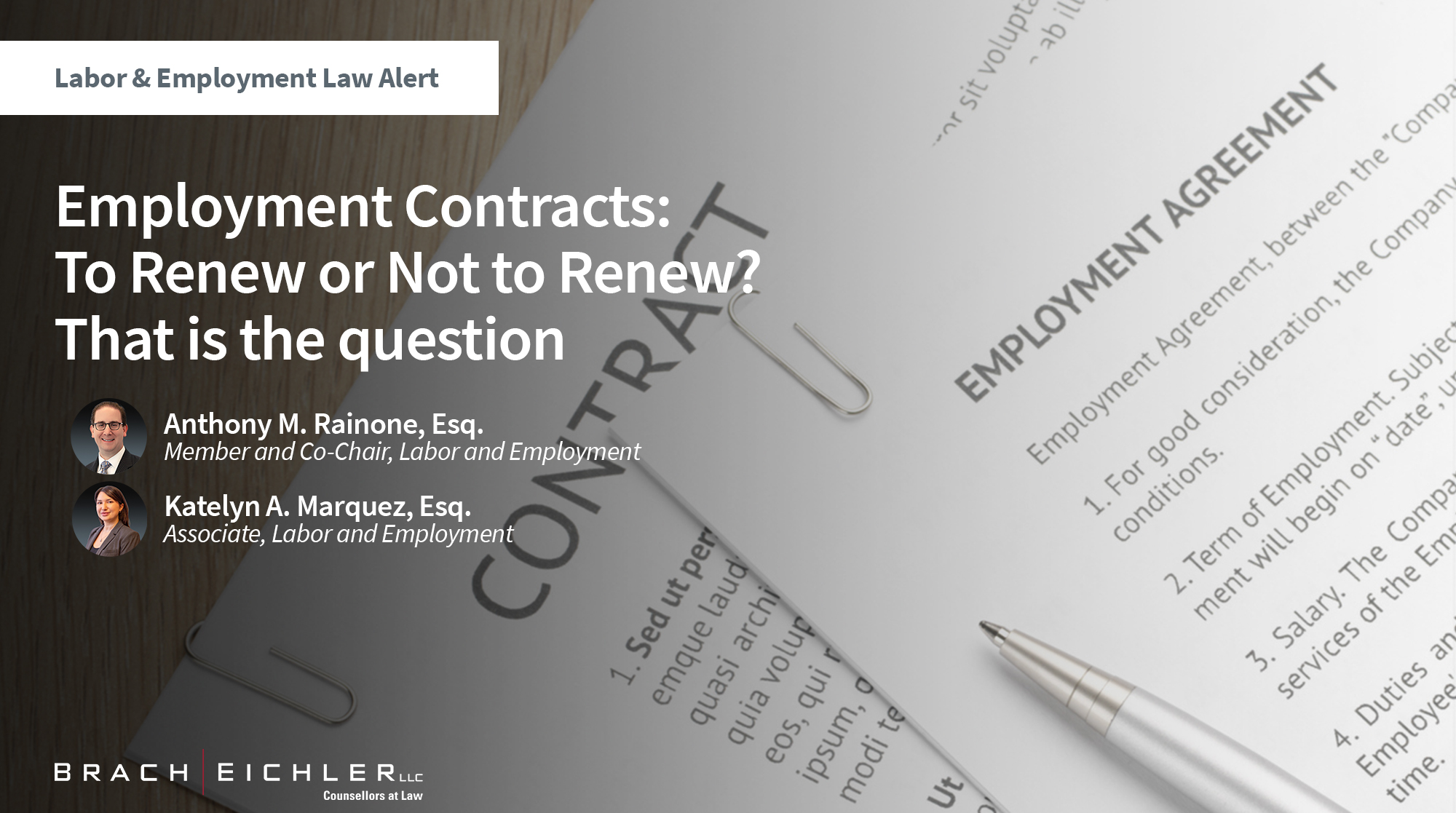Employment Contracts: To Renew or Not to Renew? That is the question

11/24/2025
As 2025 winds down and employers get caught up in the annual commotion of budgets, bonuses, and performance reviews, there’s one task that shouldn’t slip under the radar: reviewing employee contracts before they quietly renew themselves. Each state has its own laws (case law or statutory) on this issue, the ignorance of which will not help the employer.
For example, employment agreements may have an expiration or renewal with less-than-clear or non-existent language, or without built-in safeguards to prevent unwanted extensions, which can cause an employer legal headaches. Some courts have held that when a fixed-term employment agreement expires and does not address renewal, but both sides continue working as if the contract is still in place, there’s a legal presumption that the parties have agreed to a new contract on the same terms as the old one. This can happen without a signature, email, or explicit agreement. In other words, silence plus continued work can equal renewal in some courts.
For HR teams, this can present unpleasant surprises come January 1, such as multi-year commitments, locked-in terms that no longer fit the needs of the company, or the missed opportunity to restructure roles. On the legal side, these unintended consequences can become the sparks that ignite contentious, and costly, disputes. The good news is – employers can help fire-proof their operations with a proactive review of employment agreements before year-end.
Before the new year, take a close look at two key areas in your written employment agreements: (1) the contract’s duration and expiration provisions (if any), and (2) any language that addresses renewal. If language is unclear, vague or otherwise open to interpretation on the term and what happens at the end of it, it is time to take action and clear it up by way of amendment or new agreement.
Have well-defined language in an employment contract regarding the end of its term and what happens at the end of the term. If you intend for renewals, creating a specific, predictable renewal process, with defined steps and timing can help keep everyone on the same page, and reduces the likelihood of undesired assumptions regarding renewal.
Auto-renewals or ambiguous renewal language are easy areas to overlook, but these issues can carry real legal and financial consequences for employers. A surprise renewal can complicate business operations and workforce planning, or spark disputes that could have been prevented with clearer, well-defined contract language.
![]() For more information about employment contracts, please contact:
For more information about employment contracts, please contact:
Anthony M. Rainone, Esq., Member and Co-Chair, Labor and Employment Practice at 973.364.8372 or arainone@bracheichler.com














